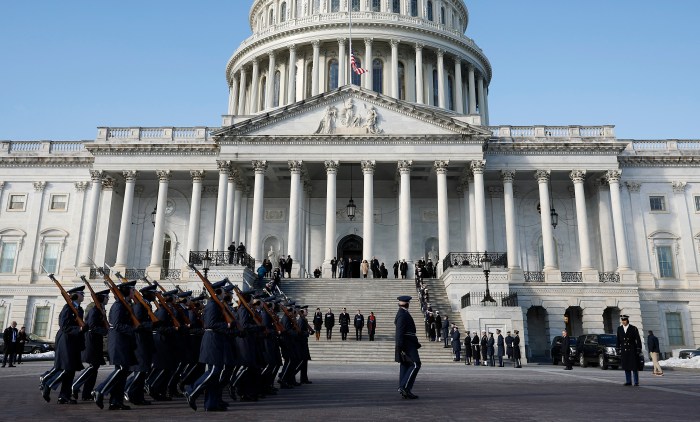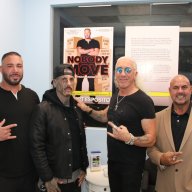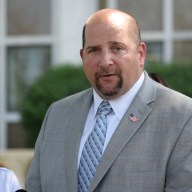On the morning of September 11, 2001, terrorists from the Islamist extreme group Al Qaeda hijacked four aircraft and crashed two into the World Trade Center in New York City. Another plane crashed into the Pentagon in Virginia. Upon learning about the other terrorist attacks, passengers on the fourth plane fought back, and it crashed into a field in western Pennsylvania several minutes by air from Washington, D.C. Nearly 3,000 people were killed, out of whom 400 were police officers and firefighters. However, approximately 400,000 people were exposed to toxic substances, risk of physical injury, and stressful conditions in the days, weeks, and months following the attacks.
The collapse of the World Trade Center created massive dust clouds that filled the air and left numerous highly populated city blocks covered with ash, debris, and hazardous particles. Over 70 known and possible carcinogens were released into the air throughout Lower Manhattan on 9/11. Some of the toxic agents people who had the misfortune of being present in the area at the time of the attacks were exposed to are heavy metals, asbestos, silica, jet fuel, dioxin, polychlorinated biphenyls, and cement dust. Alarmingly, the deaths caused by toxic exposure outnumber those who lost their lives on that tragic day. More than 10,000 first responders and other people who were in the World Trade Center area have been diagnosed with cancer.
The Victim Compensation Fund, Providing Money to Survivors with Cancer and Other Health Problems
Seeking to provide financial compensation to individuals who were injured in the terrorist attacks, the Victim Compensation Fund was established shortly after 9/11 and initially operated from 2001 to 2004. Nevertheless, in 2011, the Zadroga Act re-opened it and included new eligibility criteria and new filing deadlines. In 2019, the Never Forget the Heroes: James Zadroga, Ray Pfeifer, and Luis Alvarez Permanent Authorization of the September 11th Victim Compensation Fund Act passed, extending the claim filing deadline to October 1, 2090, and appropriating funds as may be necessary to pay all eligible claims. By virtue of the latter act, today, every person whose health was affected by toxic exposure during or after the attacks can recover compensation. So far, the Victim Compensation Fund has made awards to more than 35,000 people.
The payout for 9/11 victims with cancer is $250,000, while the payout for those with other injuries is $90,000. It is worth noting that the Victim Compensation Fund requires that the Special Master prioritize claims with the most debilitating physical conditions. There are over 69 cancers, 12 lung diseases, and several mental health and musculoskeletal disorders for which survivors can seek compensation. To be eligible for compensation under the Victim Compensation Fund, a person must have been present at a 9/11 crash site or in locations involving the handling of debris during the period beginning on September 11, 2001, through May 30, 2002. The Victim Compensation Fund requires claimants to be enrolled in and have their diagnosis certified for treatment by the World Trade Center Health Program to process a claim.
Unanimously Passed, the 9/11 Notice Act Supports Forgotten Victims of the Terrorist Attacks
Introduced by Assemblyman Nader Sayegh and Senator Brian Kavanagh, the 9/11 Notice Act was signed into law by Governor Kathy Hochul on September 11, 2023. The new legislation aims to ensure that employers make people in the Lower Manhattan and northern Brooklyn exposure zones aware of their rights to register for the Victim Compensation Fund and the World Trade Center Health Program. While over 80% of first responders have registered with the federal health and compensation programs, only a small percentage of survivors with qualifying medical conditions have done so.
The legislation requires businesses and institutions that had individuals return after the attacks to notify them of their potential eligibility for the Victim Compensation Fund and World Trade Center Health Program. Until now, over 5,000 people have died from 9/11-related illnesses, and considering the large number of survivors with cancer, more are expected to pass away in the near future. Because cancer treatment is often expensive, toxic exposure victims should be encouraged to file a claim with federal compensation programs so that they can obtain the money they need to afford it. For many, this could mean the difference between life and death.
Jonathan Sharp is Chief Financial Officer at Environmental Litigation Group, P.C. The law firm, headquartered in Birmingham, Alabama, provides assistance to 9/11 first responders and survivors injured by toxic exposure. Jonathan Sharp is responsible for case evaluation, management of firm assets, and financial analysis.





























